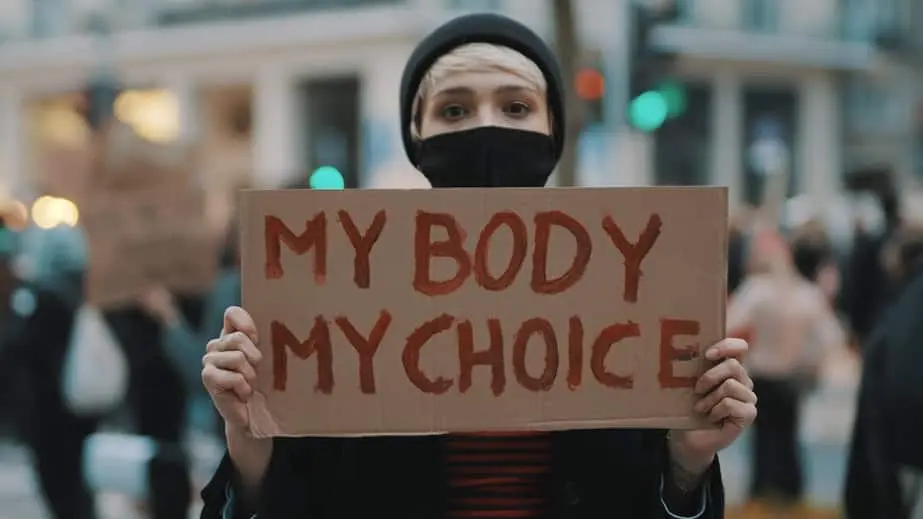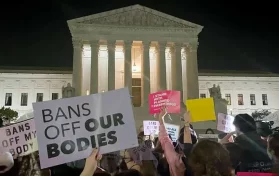
Since a leaked draft of a Supreme Court decision that would appear to overturn Roe v. Wade appeared last week, Senate Majority Leader Chuck Schumer (D-NY) vowed to hold a vote on the Women’s Health Protection Act, a bill that would “establish a national right to abortion.” All fifty Senate Republicans voted against the bill, and moderate Joe Manchin (D-WV) joined Republicans in voting against the bill.
Since the leak surfaced via a Politico story late last Monday night, the nation erupted in chaos over the hotly debated issue. Abortion rights – and the right to life – has always been a volatile issue. The leak has prompted doxing of the Justices, particularly those considered conservative Justices. Protestors have rallied outside the homes of Justice Brett Kavanaugh, who has young children in the home. They have also piled up outside the homes of Chief Justice John Roberts and Justice Samuel Alito, who wrote the opinion draft.
Protests have broken out across the country; one protest in Los Angeles resulted in an injury to an officer last week.
Senator Elizabeth Warren (D-MA) has joined in protests outside the Judicial Building in DC, and yesterday, many female Congresspeople took to the halls of the Capitol Building chanting “my body, my decision.” Members of the Squad, including Ilhan Omar and Rashisa Tlaib, lead the march. Rep. Cori Bush (D-MO) has spoken at protests as well.
The Women’s Health Protection Act was passed by the House in September 2021 by a margin of 218 – 211.
The bill would have given a nationwide right to abortion with no restrictions. This means that currently prohibited abortions after a certain point in time of the pregnancy (after twenty weeks, for example) are no longer banned; this would give women the right to terminate the pregnancy even in the third trimester. The bill would also have removed protections for physicians citing conscientious objections to providing abortions. The WHPA would also fund abortions using taxpayer money.
When the draft opinion was leaked, one of the original arguments – even some stemming from the White House – held that this would make abortion illegal across the United States. However, critics of the draft have backed off from this claim after legal scholars agreed that the opinion would not make abortion illegal nationwide, but would instead send the decision back to the states where each individual state government would decide.
The leak also revived a Senate debate that has been defeated once already – a vote to end the filibuster (also called the nuclear option). Just a few months ago, in an effort to pass the Build Back Better bill, protestors went after Senators Joe Manchin and Kyrsten Sinema as the pair refused to vote to kill the filibuster rule. After the leak, talk once again rose regarding the filibuster, but Manchin and Sinema remained resolute.
The vote on the Women’s Health Protection Act yesterday would have had to garner sixty votes in order for the Senate to be able to start the debate on the issue.
At least twenty-six states have already enacted “trigger laws,” which would effectively ban abortions in those states in the event Roe v. Wade is overturned. For example, in Mississippi, the state who brought the current case on which the opinion was written (Dobbs v. Jackson Women’s Health), a trigger law was passed in 2007 that would effectively ban the practice in the Magnolia state. Reeves appeared on Fox News on Tuesday explaining that the trigger law would take precedent over the more recent law which banned abortion after fifteen weeks’ gestation.
Vice President Kamala Harris presided over the vote, said to reporters upon the bill’s failure to pass: “Sadly, the Senate failed to stand in defense of a woman’s right to make decisions about her own body . . . what we are seeing around this country are extremist Republican leaders seeking to criminalize and punish women. . . “





